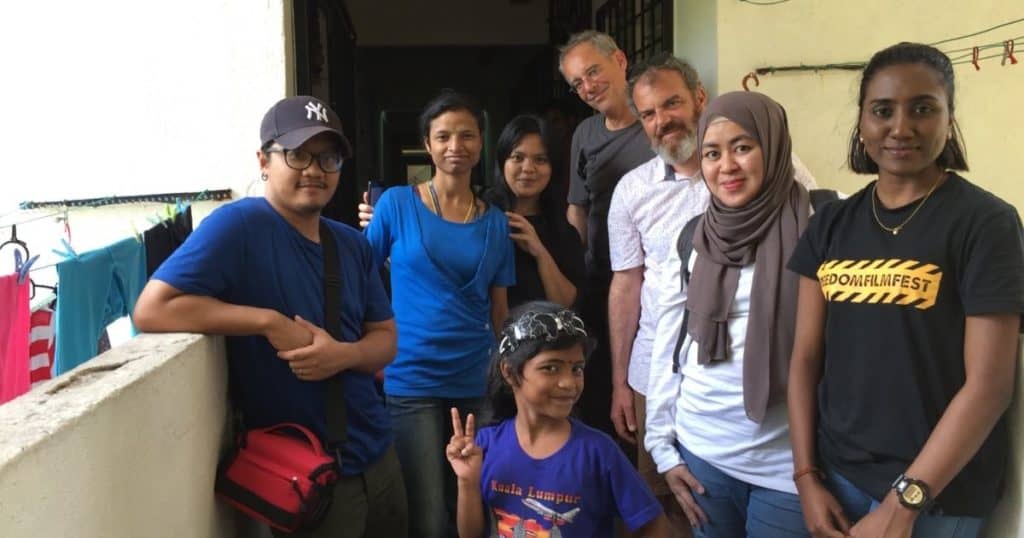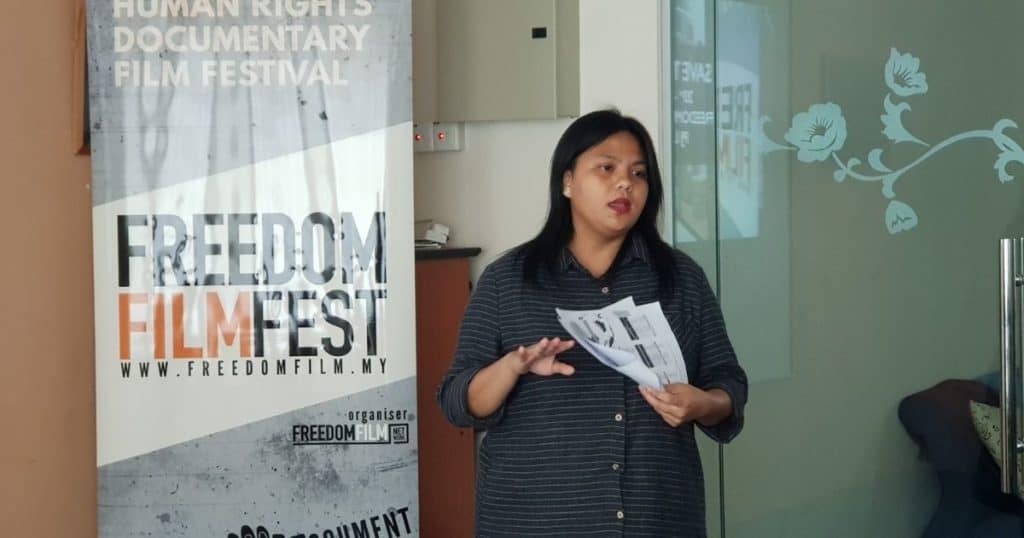
From 20th – 28th September 2019, FreedomFilmFest (FFF), Malaysia’s leading international human rights documentary film festival will be back in the Klang Valley. This year’s festival takes inspiration from the Malaysian phrase “Harga Naik, Gaji Maintain” (Soaring Prices, Stagnant Wages), a theme that we hope will inform and spark debate on issues of wealth disparity in the country.
Each year, FFF award small film grants to first time and/or amateur filmmakers from Malaysia and Singapore who pitch their documentary ideas to a panel of independent judges for consideration. This year we are proud to announce the awarding of two small film grants to two Malaysians who will also receive mentoring and production support from the Freedom Film Network for their documentaries to be fully envisioned and premiered at this year’s festival.
Special thanks to this year’s judging panel, which comprised of MyDocs President Harun Abdul Rahman, Associate Professor of Nottingham University, Thomas Barker and Co-Founder of the Pit-Stop Community Cafe Joycelyn Lee. Thanks also to our film grant sponsors Penang Institute and MyDocs.

On this year’s pitches Harun says,“Once again FFF has managed to discover and nurture new filmmakers with real stories that are important to all Malaysians. The choices for this year’s FFF Grant is as always, excellent. It is a difficult task but the two winners stood out in their proposal and pitch. Confident and knowing their story well, both the winners now have the challenge to translate their ideas into the film”
This week we highlight filmmaker and freelance video producer Azreen Madzlan who is the recipient of one of this year’s film grants for pitching her documentary “Demi Paymitra”.
Demi Paymitra
A study released by UNICEF Malaysia, in February 2018 made national headlines and drew the country’s attention to some of the serious issues facing urban poor who are living in low-cost flats in KL. The report entitled “Children Without” revealed findings on multidimensional child poverty and in particular the impact it has on child malnourishment.
Azreen’s documentary will follow Paymitra, a bright and active 7-year old girl who lives with her parents Aishah and Thiagarajan in Projek Perumahan Rakyat (low-cost public housing) in Desa Rejang, Kuala Lumpur. Paymitra’s father works as a security guard, while her mother stays at home to take care of the family.
Paymitra grew up often having to face daily food deprivation and malnutrition, which caused her to be underweight as a result of poverty and she never had the opportunity to play outside like most children her age due to high crime rates in her housing area. Through Azreen’s intimate documentary, we will get to listen to the story of a child living in low-cost housing in Kuala Lumpur who has been left behind in Malaysia’s race to become a high-income nation.
Film grant judge Thomas Barker says that “Azreen’s proposal promises to show urban poverty in the heart of Kuala Lumpur, often hidden from public view. If she can use the filmmaking process as a means of social intervention she can not only show us the deprivation around us but seek answers and assistance for the family at the heart of her film.”
Joycelyn Lee says “Azreen’s proposed documentary highlights something we forget because of our rush towards development. No child should be left behind.”
Here’s our interview with her!
FFF: Azreen, what inspired you to apply for this year’s film grant?
Azreen: “I have always been an ardent supporter of the FreedomFilmFest ever since they first started in 2003. I applied for the grant during the early years of the festival but it was unsuccessful partly because I wasn’t experienced in documentary filmmaking at that time. Over the years working as a video journalist and producer for news agencies, I have a deeper understanding of the human rights issues happening in the country.
I was also inspired by this year’s theme which is ‘Harga Naik, Gaji Mantain’, as bread and butter issues like the rising cost of living, unemployment and affordable housing remain top concerns of Malaysians. And I’m ready to explore longer-form storytelling as opposed to doing short news reports that I have been doing for the past few years.
At the same time, UNICEF released a study of urban child poverty in low-cost flats in Kuala Lumpur last year which caused a huge uproar in the country and I wanted to put a human face to these statistics by doing a documentary about it.”
FFF: How did you first become acquainted with Paymitra and her family?
A: “I was spending some time in Projek Perumahan Rakyat (PPR) Desa Rejang, Kuala Lumpur doing research and looking for families that will fit into my story of urban poverty since the UNICEF report focused on families living in PPR. Initially, I wanted to document a family of 12 staying there that went viral last year due to extreme poverty, but they were reluctant to be featured in the documentary.
So I went around and asked the residents of the flats to help me look for another Indian family. I specifically looked for an Indian family because income inequality is highest in the Indian community as compared to other ethnic groups, and malnutrition was even more severe among Indian children. One resident connected me with Paymitra parents, so I explained about the project and they were willing to be part of it.”
FFF: Why is this story important to you? and to the Malaysian public?
A: “Firstly as a mother to a 12-year-old child, I’m very much concerned about the effect poverty has on children’s cognitive development and most of the time these effects are not reversible. And this goes beyond poor nutrition, as there are many other factors affecting their well-being such as access to education, lack of safety and social ills.
The government always boast of data and figures showing Malaysians can afford comfortable lives but the reality on the ground is different. It’s important for Malaysians to realise that excessive urban growth in our race to become a high-income nation will lead to escalating economic and social problems among marginalised groups. This is a matter of public urgency and we need to solve this now because the children cannot wait.”
FFF: What do you hope this documentary will achieve?
A: “I hope this documentary will spark a dialogue among the public as well as the policymakers and private sectors, about the impact of rapid urbanisation on vulnerable and marginalised groups. Poverty gaps in rural and urban areas still remain wide and this will pose a challenge for the Malaysian economy and productivity in the future.
I also hope that the Malaysian government will look into what the economists have long raised, that we can no longer measure poverty in absolute terms. Poverty is multidimensional and covers many aspects of human and social behaviour, not just based on income level. Although the government has committed to eradicating poverty through various policies, there needs to be a study to identify the effectiveness of these programs. A specific urban poverty reduction program needs to be designed so that we can identify the most vulnerable people in urban areas.
I also hope that this documentary will eliminate the stereotype that usually comes with the urban poor – that they are lazy and have large families. Most of them work full time but they earn much less than the national poverty line and do not have social safety nets like average workers.”
Azreen will begin filming her documentary from this month until June. Demi Paymitra will premier at FFF2019 in the Klang Valley from 20th – 28th September 2019. The festival will later travel to other key states in Malaysia including Penang, Johor, Sabah, Sarawak and also to Singapore.

